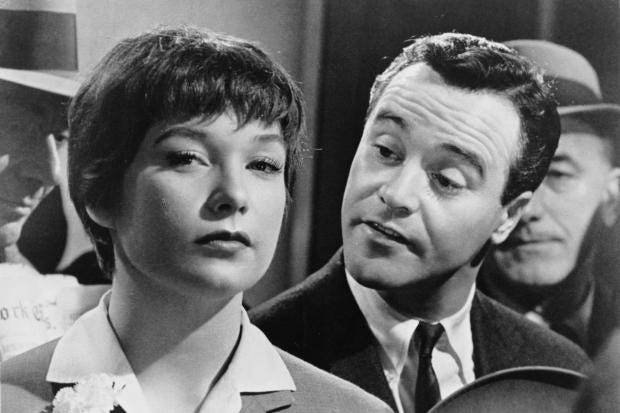Empire of the Sun (1987) Directed by Stephen Spielberg
I have a Steven Spielberg problem. I enjoy a lot of his movies, especially some of his wonderful early films that are among the greatest pure entertainment movies in film history (
Jaws;
Raiders of the Lost Ark;
ET--not
Close Encounters of the Third Kind, though, which I would have started where it ended). The problem I have is with almost everything else. My annoyance with him has built up over time, especially so as he has had a rather front-loaded career. In a nutshell, though he is a great film technician, one who can be mentioned in the same breath as Hitchcock, Kubrick and Ford, he is a banal and lazy thinker. With a few exceptions (
Schindler's List;
Munich; and to a somewhat lesser extent
Bridge of Spies), he has spent his career making movies for 14-year-olds. Even some of his histories (
The Color Purple;
Amistad) are history lessons delivered to 14-year-olds, easily digested and not very complicated. In general, I would say this is true not just of the movies that he directs but also of most of the vast number of movies that he produces. He is a living, breathing Peter Pan who throughout most of his career wills himself to never grow up. He hasn't aimed all his lesser films at children--
Minority Report;
Catch Me If You Can;
Lincoln could be argued to be adult fare. But even in these instances the end result is shallow. He thinks the subjects are important enough to devote his time and skill to them, but their delights are pretty much on the surface. His movies may stay with me because of his technical virtuosity or because of his ability to create stunning images, something for which he has a major gift. But I never think about the ideas he is dealing with--his movies have the intellectual depth of a Hallmark birthday card. Generally speaking, no other great director has ever presented a body of work that is as lacking in depth as Spielberg's oeuvre . In this negative regard, I can't think of another great director who even comes close.
Which brings us to
Empire of the Sun, theoretically one of his "adult" movies except for the fact that it stars a 12- to 14-year-old boy and that the movie could have been subtitled "A British Lad's Jolly Tme in a Japanese Internment Camp," at least until the last half hour of the movie. After an effective introduction, the movie becomes a character study about a plucky young teen who keeps himself busy in the cleanest, most downhome prison in movie history. Jim (a young, very good Christian Bale) is surrounded by characters who are either earnest in a furled-brow British sort or way or look like they have just stepped out of the pages of a Dickens' novel, starting with John Malkovich's Artful Dodger of a character, Basie. The movie contains some brilliant scenes and images (why Spielberg movies are almost always worth coming back for more) but
Empire of the Sun is also a good compendium of many of Spielberg's principal sins. When he wants to move his audience, he always takes the most deliberate route. So we get touching scenes with a Japanese school boy who is inexplicably part of the occupying forces; we get Jim saluting the Japanese flyers whose vocation he idolizes; we get Jim showing how plucky he is in even the most dire situations. As is true in way too many of his works, if you don't get the obvious heart warming bits, Steven will help you out by providing the gooiest choir imaginable schlocking its collective heart out in the background as though it had just entered the gates of heaven. While Spielberg is busy moving us, it is hard not to notice that with the exception of Jim, his other characters aren't going anywhere--we never learn anything more about them that we couldn't have figured out after their first couple of minutes (or less) of their screen time. They might as well be mannequins. It's not that Spielberg isn't capable of moral complexity, as evidenced by
Munich and the last half hour of this movie. It just isn't something that is normally in his comfort zone. Maybe it is just too hard to think about it.
There was one moment that stood out for me in this movie in a positive way. Near the end, when things aren't so jolly any more and Jim is no longer an Oliver Twist stand-in, there is a brief throwaway scene that resonates with all that Spielberg movies usually lack: spontaneity, unpredictability, risk. His surrogate mom, morosely sitting in a lawn chair, is dying and unable to leave the camp. Jim doesn't know what to do but he doesn't want to abandon her. He comes up with "Lay down and pretend you are dead." He shows her how, then she follows suit, and moments later, she dies.
That move took my breath away: an absolutely out-of-the-blue, totally unexpected gesture that the audience doesn't immediately know what to do with in a movie filled with depressingly predictable responses. If he can do that even once, why can't Spielberg make movies of depth designed for adults more frequently? Maybe he just really has nothing to say.




